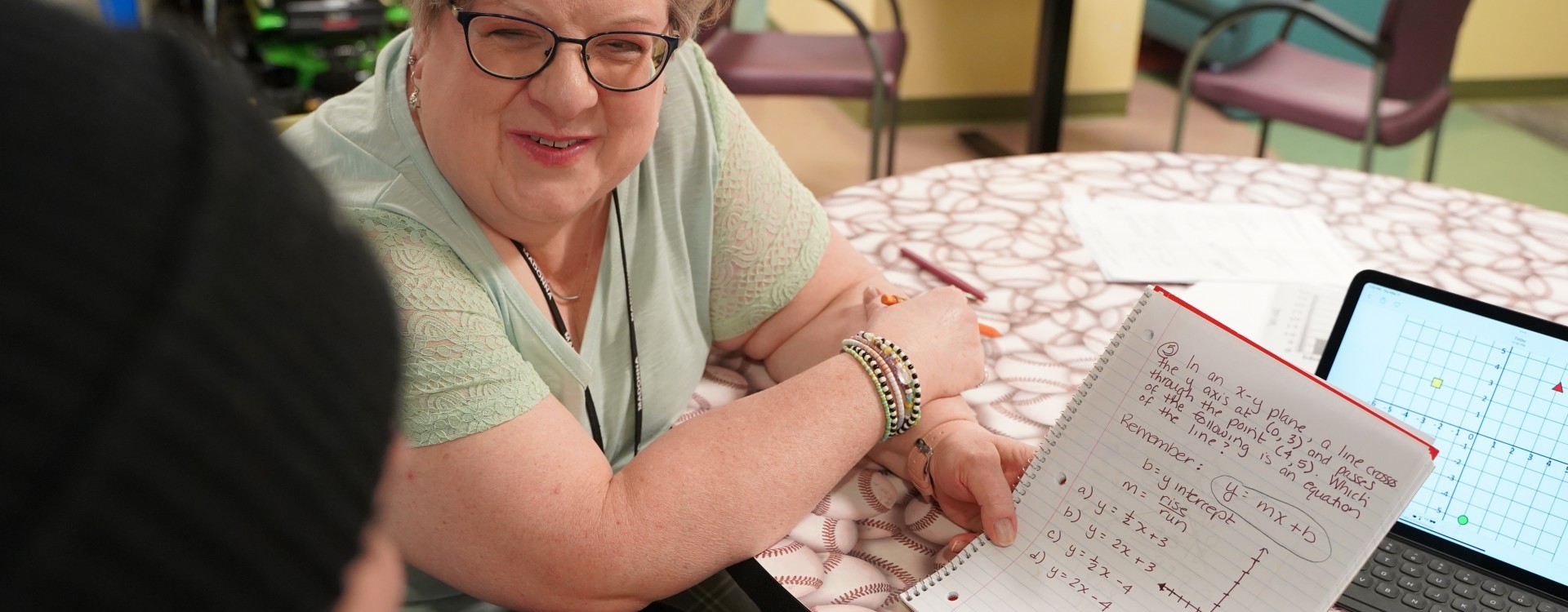Senior year is a year filled with excitement, anticipation, and the looming realization that the days in high school are numbered. From prom to senior night, it’s a year to make lasting memories with friends and family.
But Jose Ortega Moreno, Jr.’s senior year suddenly changed when he was hospitalized for acute flaccid paralysis, a rare but serious neurological illness which is normally due to inflammation of the spinal cord. This condition is characterized by mobility limitation, loss of normal function to the arms and hands and weakened or reduced muscle tone.
Moreno, a student at Omaha Gross Catholic High School, has spent the last two-and-a-half months working diligently in intense, daily physical, occupational and speech therapies at Madonna Rehabilitation Hospitals’ pediatric unit. Additionally, he spent time daily in Madonna’s Therapeutic Learning Center (TLC) to earn his high school diploma on time.
Thanks to the collaboration between Madonna’s TLC and Omaha Gross Catholic High School, Moreno was able to complete his Government and Politics class, his final grade needed for graduation. The educational care team also helped him review for the ACCUPLACER, a test which helps colleges assess student readiness for introductory credit-bearing courses and make reliable placement decisions.
Deb Buchholz, the therapeutic educational coordinator and teacher at Madonna Rehabilitation Hospitals-Lincoln, taught for Lincoln Public Schools for 31 years before coming to Madonna. On the inpatient side, she is a part of the treatment team. When a school-aged patient is admitted, the case manager will introduce the family to all the people they might meet while at Madonna, including Buchholz. They also get a school release form, which allows Buchholz to contact the school and tell them that one of their students is now a patient at Madonna.
If a patient is ready for the Therapeutic Learning Center, the teachers will get them on the schedule for 30 minutes, five days a week. If they aren’t ready, Buchholz will keep attending care team meetings, listening for clues and informing the school of any updates.
“I have to wait until they’re ready enough to be able to be a part of it,” Buchholz said. “Speech is a big part of helping me know when it’s time.”
To deem readiness, Buchholz screens the patient to see if they can attain and attend to something for at least 10 minutes and determines if they are medically stable enough to have TLC as an additional therapy, without it being a stressor on them or causing more discomfort.
Additionally, the educational specialists will do a math and reading screener to give them a generalized grade level, especially with pediatric brain injury patients. If the patient did not have any cognitive impairments due to their injury or illness, Buchholz will work with the school administration and counselors to determine how many credits they have and what work needs to be completed to keep the patient on track to graduate with their peers.
“For some kids, it’s a major way for them to stay on track so they don’t get off from their peers and they don’t have to return to school and be different from everybody that they’ve been in school with all their lives,” Buchholz said.
Once a patient leaves Madonna, Buchholz hosts a school meeting that includes the therapy team, nurses and the home school. The treatment team educates the school and gives them information needed for 504 or IEP plans.
“We get the school ready for the kid,” Buchholz said. “The kid never has to be ready for school, the school has to be ready for the kiddo when they’re returning. There is an 11-page school re-entry checklist that I have my therapy team do for me to tell a school exactly where a kid is at when they discharge.”
The TLC at Madonna isn’t just for children. Anytime a patient is in school of any kind, whether they’re a 35-year-old, non-traditional student, a 20-year-old community college student, or a 19-year-old who is pursuing his or her GED, they can all participate in the program.
Buchholz also sees outpatient individuals through Madonna’s the mild traumatic brain injury clinic. She also works with adult teachers who have had an injury and need to re-learn how to teach. They go through what it would look like to stand again in front of the whiteboard, writing legibly and answering the rapid fire questioning from students.
“For every patient, TLC is unique,” Buchholz said. “We’ve done a lot of different things.”
Knowing that Moreno had a goal of walking across the stage at graduation, Buchholz and the rest of his Madonna care team organized a special ceremony for him. He graduated last Thursday just in time to virtually watch his Omaha Gross classmates walk across the stage. He will return to Omaha for further rehabilitation services and continue his education at a local community college.
“It was a great opportunity to finish my classes so I didn’t just graduate,” Moreno said. “I wanted to work hard and actually earn it and I did.”





